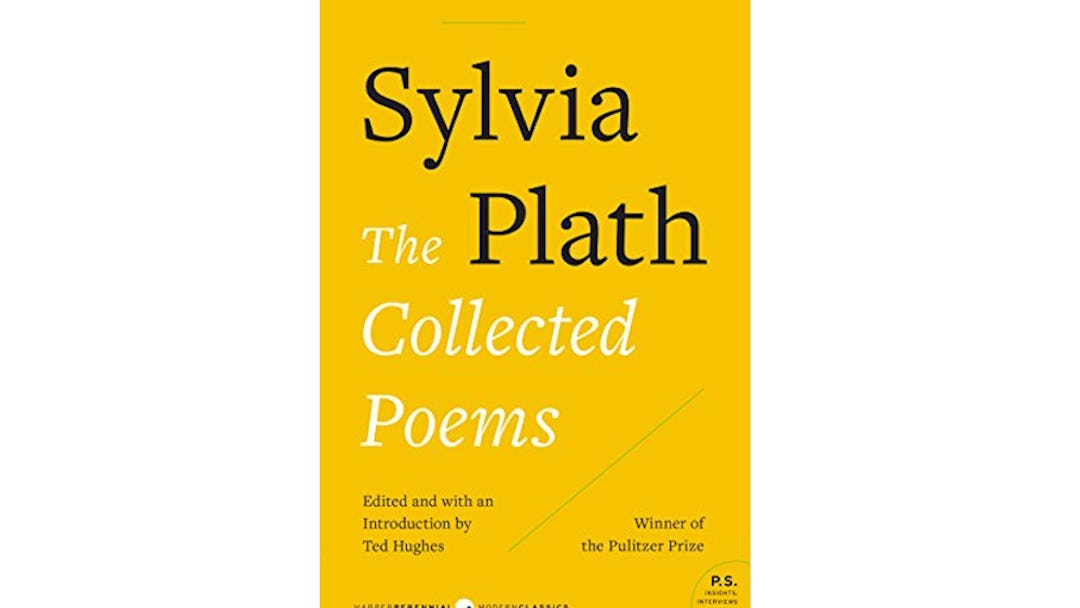
For Sylvia Plath’s Birthday, Experience Her Most Haunting Lines About Birth and Death
On Sylvia Plath’s birthday, we inevitably trot out the tributes for the brilliant, doomed poet, who remains as much a cultural force as ever. From her early nervous breakdown which she chronicled in The Bell Jar, to her complex, smart earlier poetry, to her happy, then miserable marriage to Ted Hughes, to wild, prophetic Ariel poems written in the months before her death, Plath’s entire life and work have been scrutinized undendingly, turned into film, biography, novels and more.
“That’s the Plath-world, freakishly bleak, exerting its tractor-beam fascination on American culture,” James Parker wrote in The Atlantic three years ago. “Fifty years after she killed herself, we find her vital, nasty, invincible, red-and-white poetry sitting in a region of cultural near-exhaustion. Her short life has been trampled and retrampled under the biographer’s hoof, her opus viewed and skewed through every conceivable lens of interpretation.”
As Parker notes, the tragedy of Plath’s suicide contrasted with her genius is what keeps us reeled in: “It’s awful to think about, awful to touch with our minds. And so, being human, we can’t stop,” he writes. Plath, whose writing was acerbic, dark and full of arresting and unforgettable images, remains a cult figure for feminists, poets, cultural historians and teenage girls who read The Bell Jar and Ariel as part of their coming of age rituals.
But beyond the greatest hits and the overarching story of her life, are some incredibly powerful lines of poetry.
For instance, Plath’s late poem, “A Birthday Present,” appropriate to read this week, is by far one of her most bleak — and it prefigures her suicide. Listen to her read it in the recording below:
Some of my favorite lines come towards the end, as she’s begging the present-giver to release her from mortality and “lift the veil,” saying no earthly present is enough:
There is one thing I want today, and only you can give it to me. It stands at my window, big as the sky. It breathes from my sheets, the cold dead center Where split lives congeal and stiffen to history. Let it not come by the mail, finger by finger. Let it not come by word of mouth, I should be sixty By the time the whole of it was delivered, and too numb to use it. Only let down the veil, the veil, the veil.
As dark as “A Birthday Present” gets, Plath’s earlier poem “Metaphors” is a more mixed outpouring about birth, specifically about pregnancy. A playful riddle, with nine perfect syllables per each of nine lines, “Metapors” is both clever and fun while also slightly sinister in the approach to carrying new life, especially in the final line:
I’m a riddle in nine syllables, An elephant, a ponderous house, A melon strolling on two tendrils. O red fruit, ivory, fine timbers! This loaf’s big with its yeasty rising. Money’s new-minted in this fat purse. I’m a means, a stage, a cow in calf. I’ve eaten a bag of green apples, Boarded the train there’s no getting off.
This ambivalent awe can also be found in a poem she wrote about childbirth itself, “Morning Song,” which has an incredible opening sequence that highlights Plath’s trademark mix of love, doubt, and strange juxtaposed images:
Love set you going like a fat gold watch. The midwife slapped your footsoles, and your bald cry Took its place among the elements. Our voices echo, magnifying your arrival. New statue. In a drafty museum, your nakedness Shadows our safety.
So much of what Plath wrote about the life cycle events that women were supposed to treasure — birthdays, births, pregnancy — pierced the veil of the feminine mystique. Instead of contentment or happiness, Plath’s emotional vocabulary touches on longing for death, ambivalence, shock, wonder and ironic distance as part of a woman’s experience.